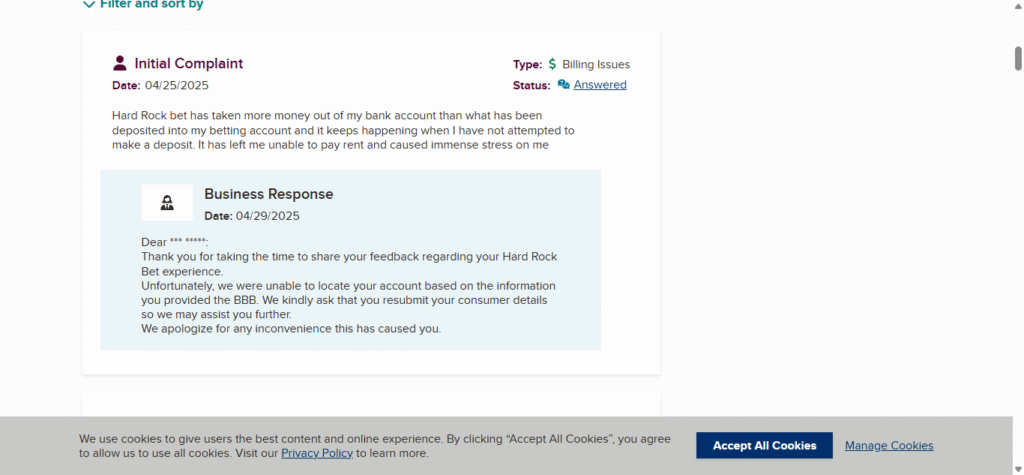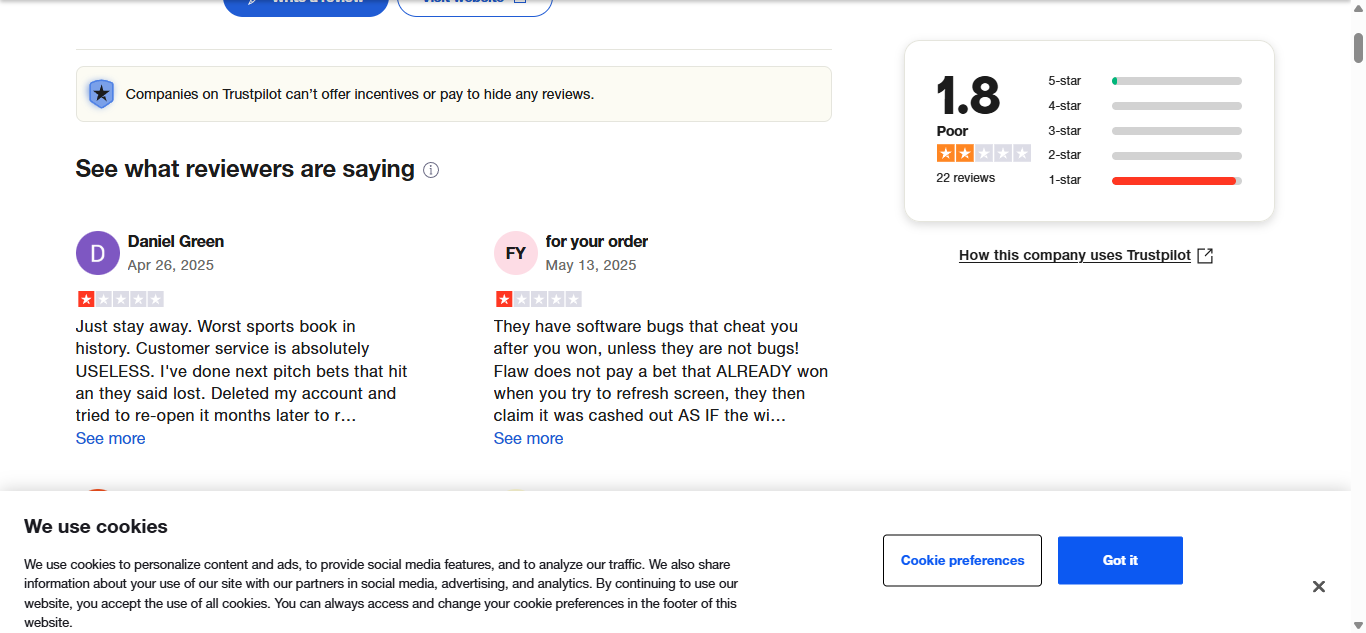Introduction to the Hard Rock Bet Dilemma
The emergence of Hard Rock Bet has marked a significant transition in the sports betting landscape, a move that has attracted both enthusiastic supporters and vocal critics. Established as part of the Hard Rock International brand, Hard Rock Bet launched its services with the promise of providing a secure, entertaining, and fair betting experience. Positioned amidst a competitive market dominated by platforms like DraftKings and FanDuel, Hard Rock Bet aimed to carve out a distinct niche by focusing on user engagement and innovation. Initially, it sought to create an atmosphere where sports betting could coexist with the enjoyment of sports, enhancing the overall experience for both casual fans and serious bettors.
However, the proliferation of online sports betting, driven by the growth of companies such as Hard Rock Bet, DraftKings, and FanDuel, has ignited a growing concern over the integrity of sports. As these platforms extend their reach, the line between genuine admiration for sports and the dynamics of gambling has blurred, leading to a sense of disillusionment among many sports enthusiasts. The excitement of placing a bet has, for some, overshadowed the pure enjoyment of watching a game, creating a dilemma where the thrill of gambling may take precedence over the appreciation of athletic prowess.
This shift raises critical questions regarding the impact of sports betting entities on the perception of competitive integrity. While the regulatory framework continues to develop, the visible impact of betting on fan engagement and behavior cannot be understated. Enthusiasts are increasingly expressing concerns that the influx of betting options detracts from the authenticity of sports, as every play and moment is potentially viewed through the lens of financial implications rather than pure competition. As consumers adjust to this new reality, the challenge lies in finding a balance that respects the integrity of sports while acknowledging the presence of gambling activities.
Comparative Analysis: Hard Rock Bet vs. DraftKings and FanDuel

In the rapidly evolving landscape of online sports betting, Hard Rock Bet, DraftKings, and FanDuel have emerged as significant players, each promoting a unique operational philosophy and marketing strategy. While these platforms present themselves as gateways to a thrilling sports betting experience, a deeper analysis reveals a strikingly similar trend across all three: an apparent prioritization of profit over the enjoyment and authenticity of sports.
Hard Rock Bet aims to capitalize on its extensive brand recognition and physical casino heritage, using aggressive marketing tactics that emphasize bonuses and promotions to attract users. DraftKings and FanDuel, on the other hand, typically utilize technology-driven user experience enhancements, offering comprehensive analytics tools and an expansive array of betting options. Despite these differences in approach, the overarching theme remains consistent—each platform’s focus is often skewed toward generating revenue rather than fostering genuine engagement with sports.
This shift in priority has significant implications for user experiences on these platforms. Many users have reported dissatisfaction regarding payout practices and transparency. Unlike the once pure enjoyment of watching a game, the user experiences on these betting sites have at times felt transactional and impersonal, leading to complaints about the reliability of payouts and the fairness of odds. Such concerns highlight the downsides of a landscape where profit margins tend to overshadow the authenticity of the sports experience.
Moreover, as networked communities of bettors emerge, the focus on profit can inadvertently lead to a culture rife with skepticism and distrust. Users may find themselves questioning the integrity of the platforms, wondering if the odds have been manipulated or if their experience is merely a game designed to enhance the operator’s bottom line. In light of these realities, it becomes clear that the competitive advancements of Hard Rock Bet, DraftKings, and FanDuel, while superficially appealing, warrant a critical examination concerning their impact on the integrity of sport and the gambling experience itself.
The Impact of Sports Betting on Fan Engagement

The rise of sports betting, exemplified by platforms such as Hard Rock Bet, Draft Kings, and Fan Duel, has fundamentally transformed the landscape of fan engagement in contemporary sports. With the proliferation of these betting platforms, the focus of spectators has shifted from a genuine appreciation of the athletic spectacle to a preoccupation with monetary outcomes. This shift has sparked a substantial decline in traditional viewership and interest, raising concerns about the integrity of sports.
Surveys indicate that a significant portion of fans now engages with sports solely to observe and predict outcomes based on their betting stakes. In fact, recent data suggests that fans who regularly participate in sports betting are less likely to view the games through a lens of loyalty or admiration, often prioritizing financial gain over team allegiance. This trend is concerning, particularly for major sports leagues that heavily relied on fan engagement for ticket sales, merchandise, and overall support.
Furthermore, avid supporters of teams are also feeling the impact of this betting-centric culture. The once vibrant environment of sports fandom, characterized by passionate support and community spirit, is increasingly overshadowed by a transactional mindset. The ongoing emphasis on betting statistics rather than traditional team spirit can lead to disillusionment among fans who genuinely appreciate the game for its artistry and competition.
Consequently, the consequences of viewing sports through the lens of betting extend beyond individual followings; they affect the entire sports ecosystem. With diminishing interest in traditional sports without financial incentives, leagues must grapple with maintaining their relevance and integrity in a landscape where fans are increasingly driven by potential payouts rather than a love for the game. This evolution requires a critical examination of the motivations shaping fan engagement today. Hard rock bet offers a bunch of useless promotions, annoy you with the fake bet boosts, no reward systems and bad customer service tops the charts. Hard rock bet is not getting many good reviews, actually the complete opposite. It seems like everyday they are robbing people’s money and people are deleting the service after a few times of using it. They cannot even attract people to the actual casino in Tampa Florida due to the service being not worth the time and efforts of going. The amount of growing complaints from reliable sources like trust pilot and the better business bureau indicate that this is a growing scam of some sort rather than a legit online sportsbook company.
The Future of Sports and Betting: A Cautionary Perspective

As the landscape of sports and betting continues to evolve, the influence of platforms like Hard Rock Bet, DraftKings, and FanDuel brings to light a series of complex challenges that could threaten the integrity of sports culture. The current trajectory, characterized by increasing accessibility to sports betting, heralds a potential shift in the way fans engage with their favorite teams and events. As betting becomes more mainstream, there is a growing concern that it may overshadow the authentic experience of sports, reducing the organic enjoyment that has long defined athletic competition.
The integration of betting into the sporting experience, while potentially lucrative for organizations, raises critical questions about fan engagement. Scenarios where betting takes precedence could cultivate an environment where success is measured not by athletic achievement but by the odds and statistics associated with the game. Such a focus risks alienating genuine fans who cherish the unpredictability and emotional engagement of sports. The essential connection between fans and the games they love could become diluted, leading to a more transactional relationship centered around wagers rather than team loyalty.
Moreover, the potential for increased regulatory oversight cannot be overlooked. As concerns about the impact of widespread sports betting grow, regulatory bodies may step in to impose stricter guidelines on the industry. While this could promote responsible gambling practices and protect vulnerable populations, excessive regulation might stifle innovation and limit consumer choices within the betting market. As we look toward the future, it is crucial to strike a balance between harnessing the excitement of betting and preserving the very essence of sports.
To safeguard the future of sports and betting, stakeholders must prioritize responsible gaming practices. A mutual understanding between sports entities and betting platforms is essential to fostering an environment where the integrity of the game remains intact, ensuring that fans continue to savor the rich tapestry of sports while enjoying responsible wagering opportunities.


Leave a Reply